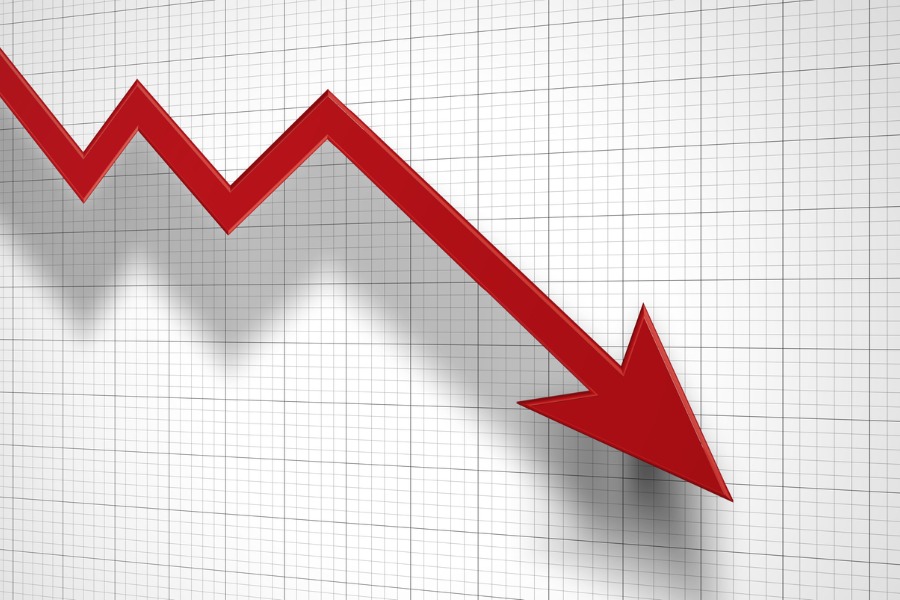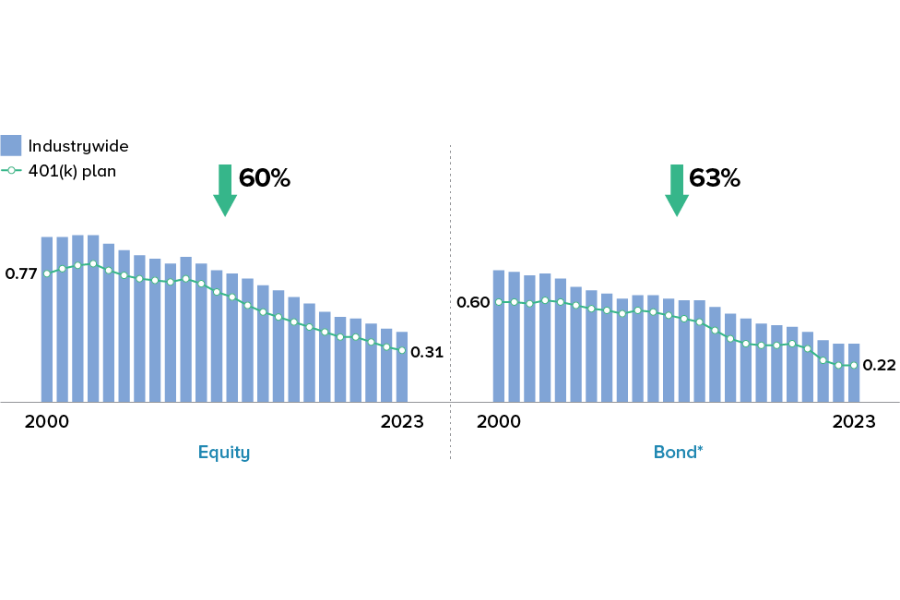

Investors in 401(k) plans in 2023 paid significantly lower fees on average for holding mutual funds than they did two decades ago, according to a new report.
Although there are signs that the competition driving down fees may be easing due to pressures on funds, the analysis by the Investment Company Institute highlights higher returns and higher retirement balances due to a decrease in the cost of investing in mutuals between 2000 and 2023.
The ICI report reveals that the average long-term mutual fund expense ratio paid by 401(k) investors dropped by more than half – 60% for equity funds and 63% for bond funds – amid a shift to lower cost funds including a move to no-load fund share classes.
The total assets held in 401(k) plans in 2023 was $7.4 trillion, with 38% invested in equity mutual funds.
Given that everything else has been getting more expensive, Sarah Holden, ICI Senior Director, Retirement and Investor Research, says the downward trend for fees is great news for American workers.
“Our study shows that retirement savers continue to see high value investing in mutual funds, which are diversified, professionally managed, and cost-effective. Competition, clear disclosure, the rising role of index funds, and plan participants’ investment choices continue to reduce the costs of saving for retirement through 401(k) plans.”

The stats show that 401(k) investors with mutual fund holdings tend to prefer lower cost funds, with 401(k) plan participants who invested in equity mutual funds in 2023 paying an average expense ratio of 0.31% compared with the expense ratio of 0.42% for all assets in equity mutual funds.
Meanwhile, those who held target date mutual funds have seen their fees drop 55% since 2008. The average asset-weighted expense ratio for target date mutual funds declined from 0.32% in 2022 to 0.30% last year.

Most firms place a limit on advisors’ sales of alternative investments to clients in the neighborhood of 10% a customer’s net worth.

Those jumping ship include women advisors and breakaways.

Firms in New York and Arizona are the latest additions to the mega-RIA.

The agent, Todd Bernstein, 67, has been charged with four counts of insurance fraud linked to allegedly switching clients from one set of annuities to another.

“While harm certainly occurred, it was not the cataclysmic harm that can justify a nearly half billion-dollar award to the State,” Justice Peter Moulton wrote, while Trump will face limits in his ability to do business in New York.
Orion's Tom Wilson on delivering coordinated, high-touch service in a world where returns alone no longer set you apart.
Barely a decade old, registered index-linked annuities have quickly surged in popularity, thanks to their unique blend of protection and growth potential—an appealing option for investors looking to chart a steadier course through today's choppy market waters, says Myles Lambert, Brighthouse Financial.
